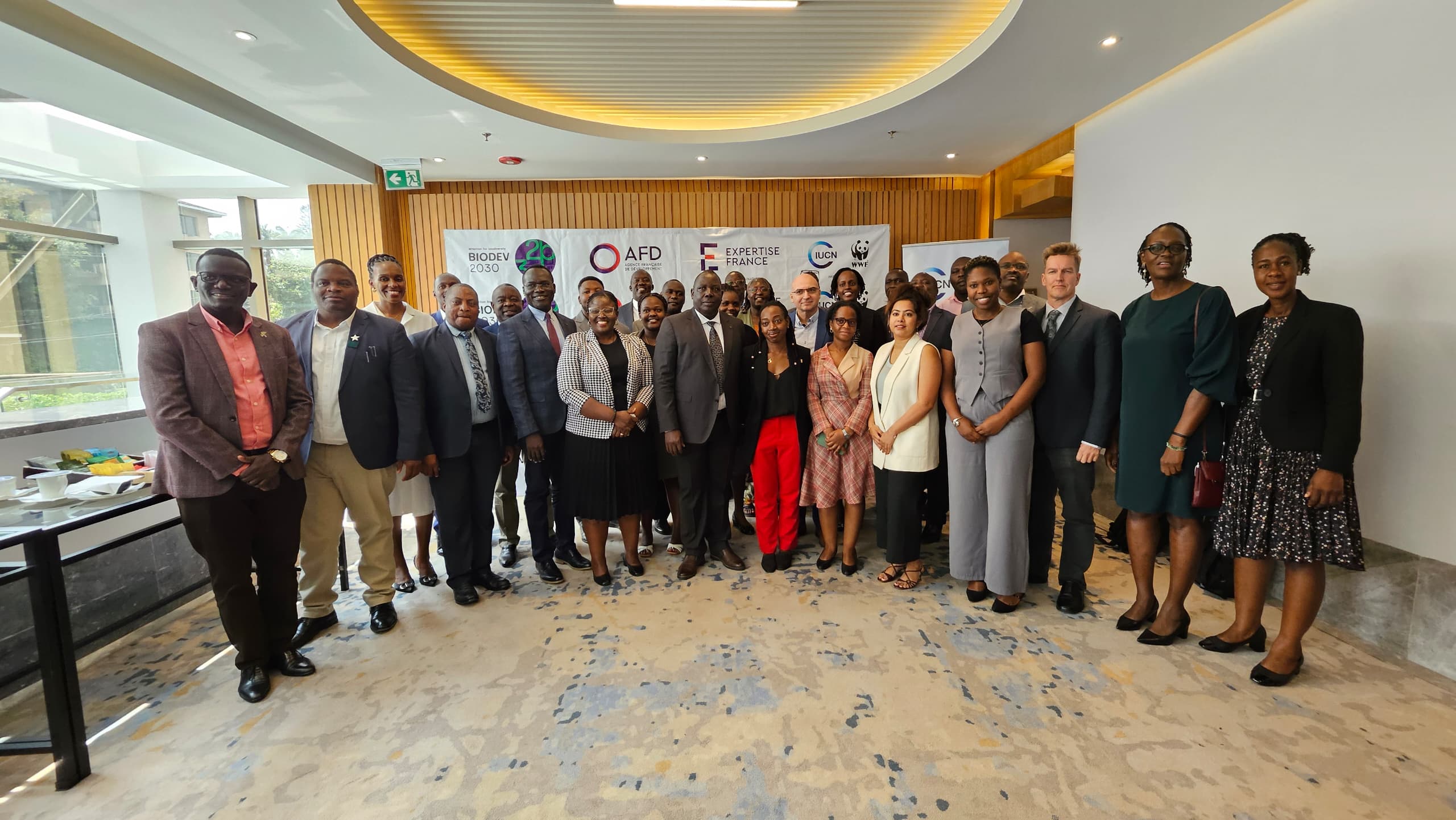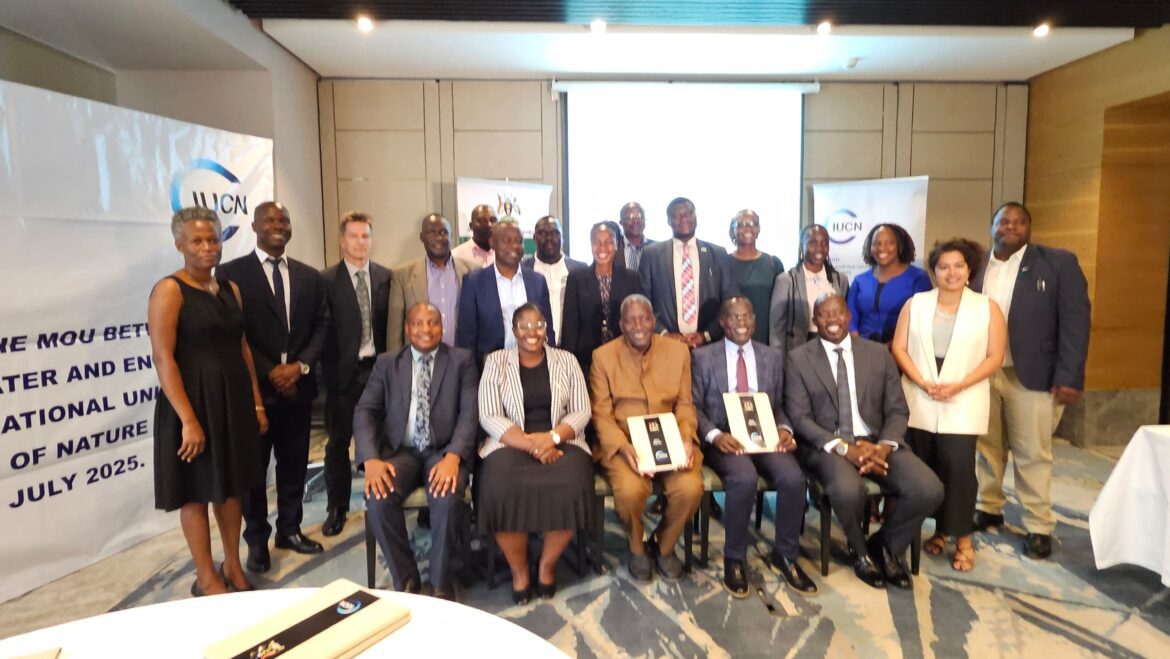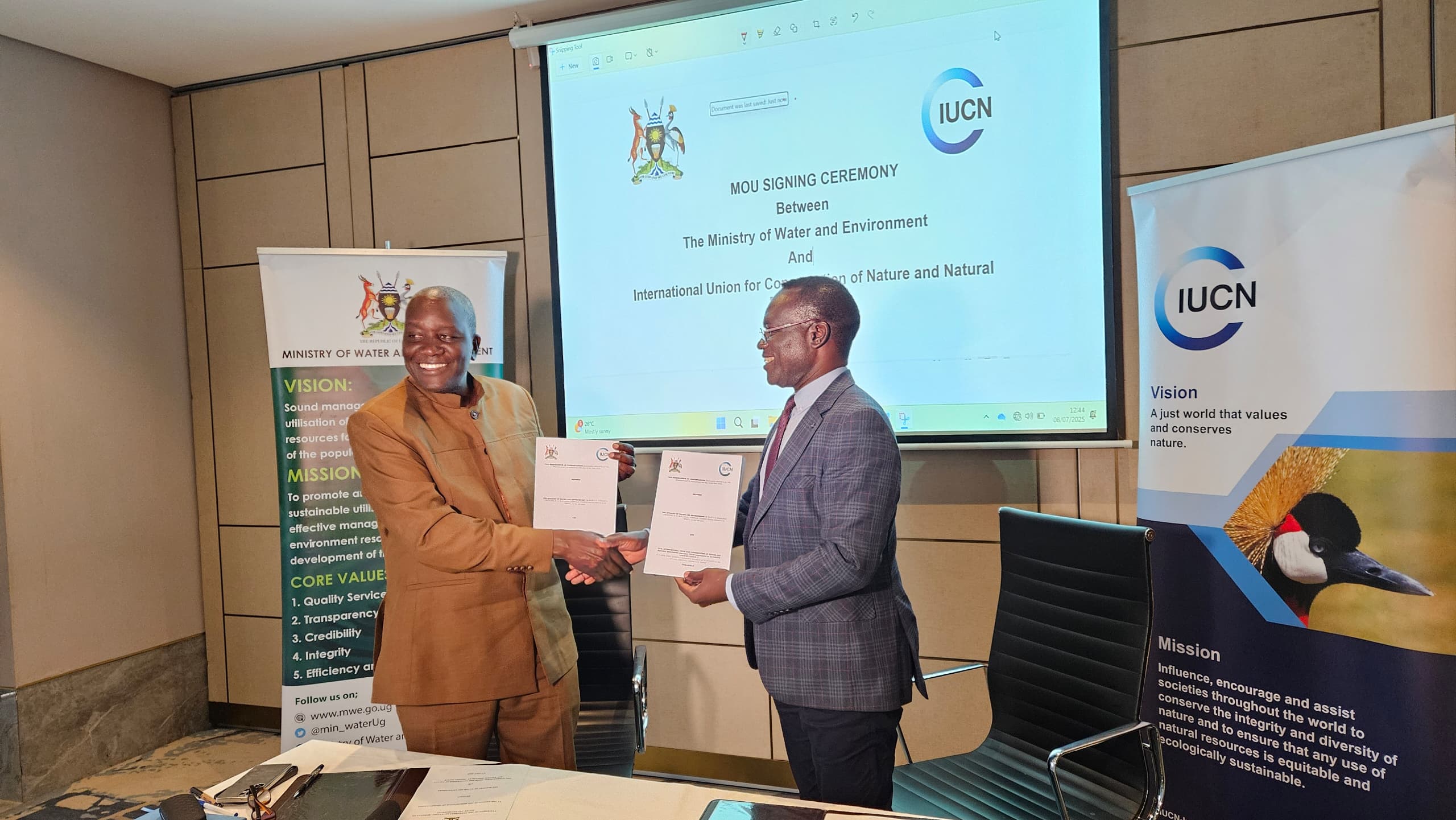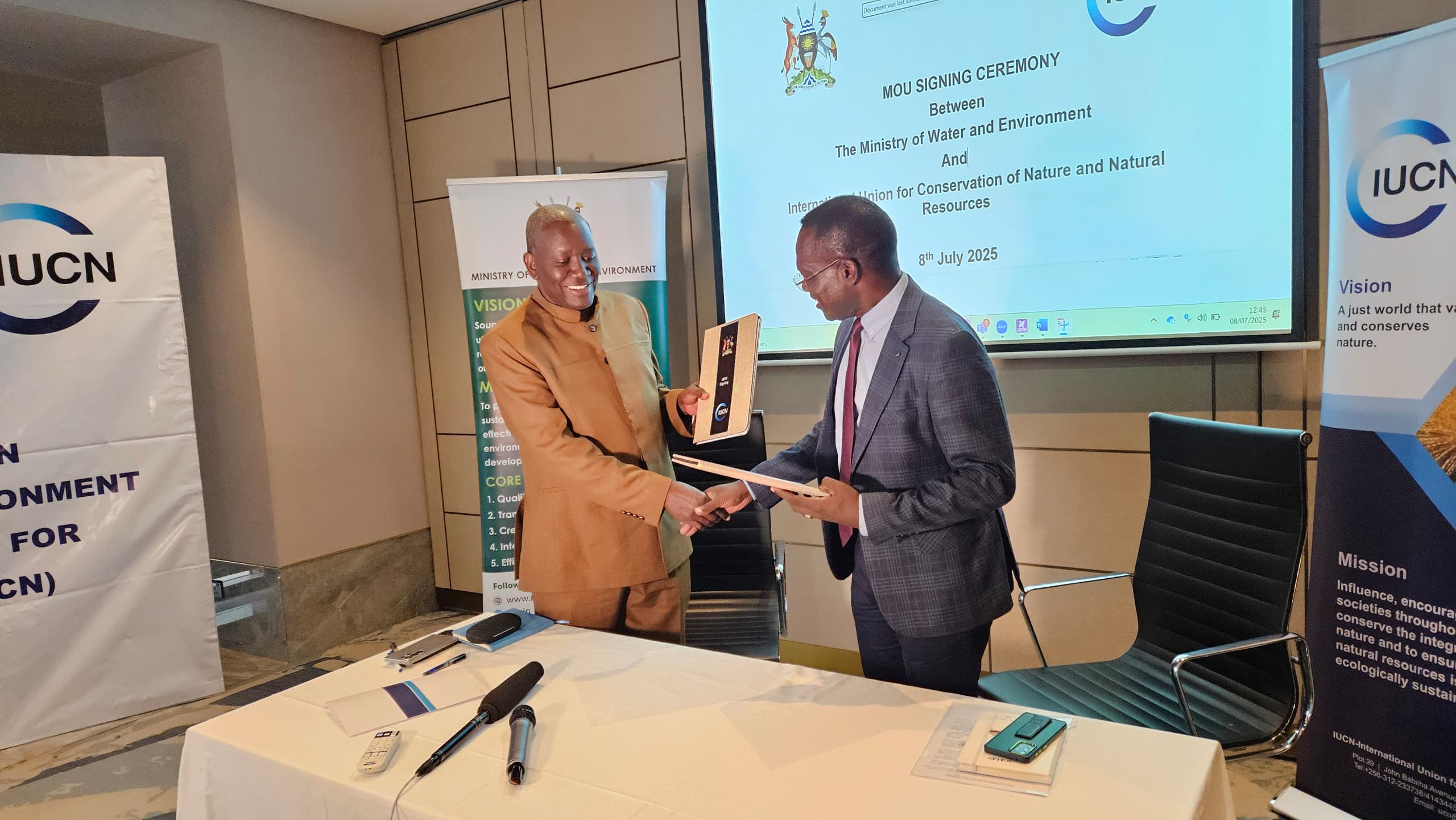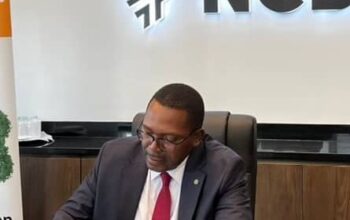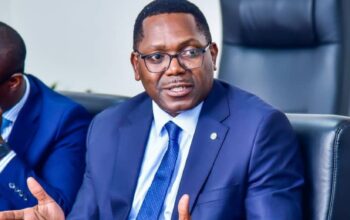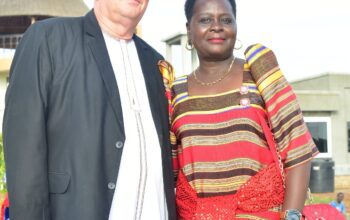The Ministry of Water and Environment (MWE) has underscored Uganda’s ambitious plans to scale up climate financing, support biodiversity, and promote sustainable development.
These goals were highlighted during a high-level breakfast meeting in Kampala today, organized by the International Union for Conservation of Nature (IUCN).
Mr. Bob Kazungu, Assistant Commissioner for Forestry Assessment and Monitoring at the MWE, revealed the country’s commitment to supporting national processes, including updates to the National Biodiversity Strategy and Action Plan (NBSAP) and Nationally Determined Contributions (NDC).
The event brought together key government entities, development partners, civil society organizations, and the private sector to identify priorities and explore opportunities for financing nature-positive development in Uganda.
When asked about lessons learned from past initiatives, Mr. Kazungu, representing Permanent Secretary Dr. Alfred Okot Okidi acknowledged Uganda’s environmental challenges.
“Uganda is still the Pearl of Africa, even when we hear that we have lost huge sizes of protected forests,” he stated.
He noted that between 2017 and 2025, Uganda lost significant hectares of forest per year, prompting the government to seek ways to “restore our glory.”
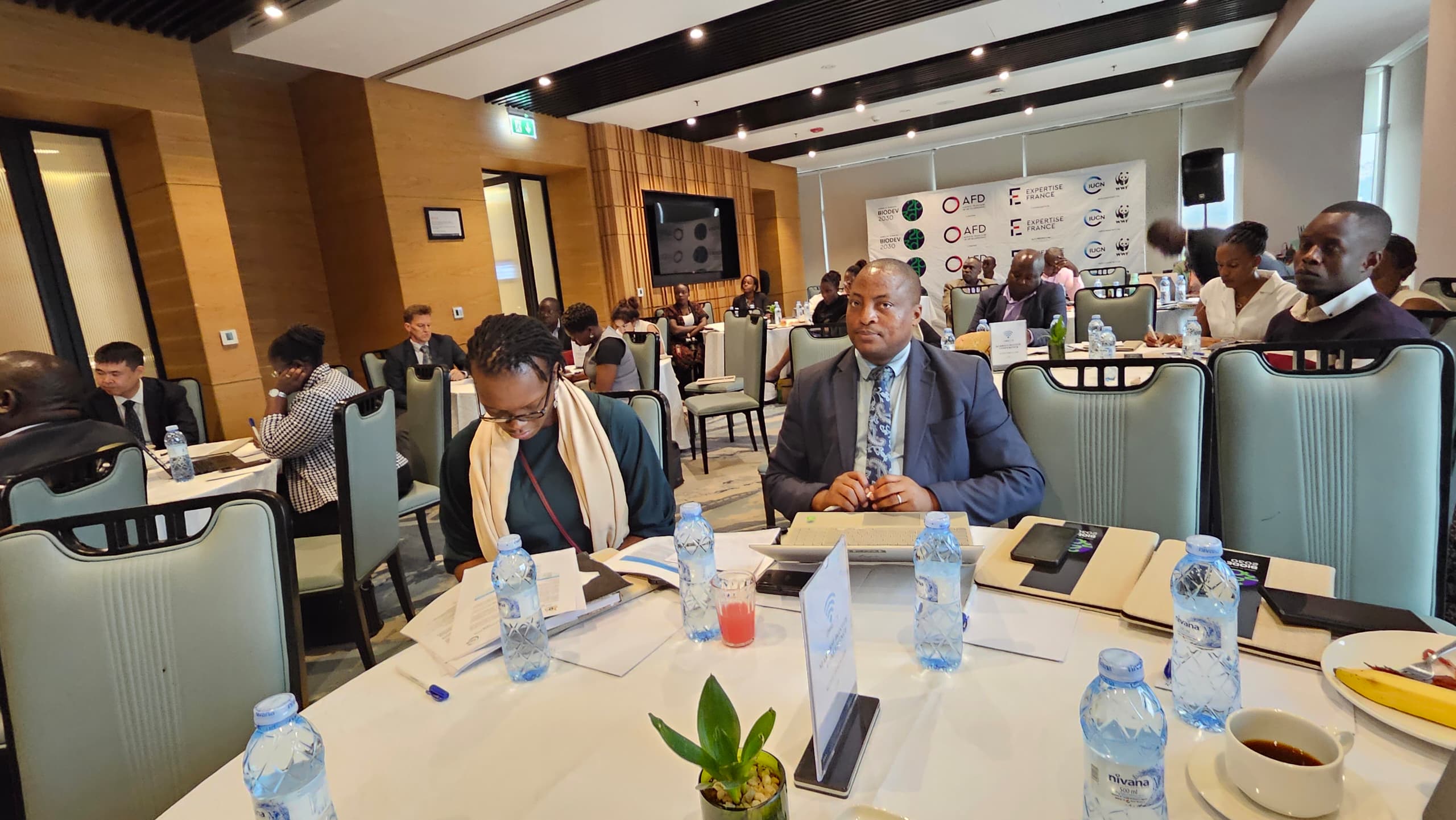
Mr. Kazungu elaborated on the country’s restorative efforts, including collaborations with IUCN and the World Resources Institute.
He mentioned Uganda’s ambitious commitments made in Bonn, Germany, to restore millions of forest hectares and the engagement of over 80 private sector stakeholders in the “Running Out of Trees (ROOTS)” campaign, which aims to plant 40 million indigenous trees annually to restore biodiversity.
“As government alone, it is difficult to deliver the ambitious plans,” Mr. Kazungu emphasized, highlighting the crucial role of stakeholders.
He cited engagement with local communities through collaborative forest resource management programs like the Green Climate Fund (GCF).
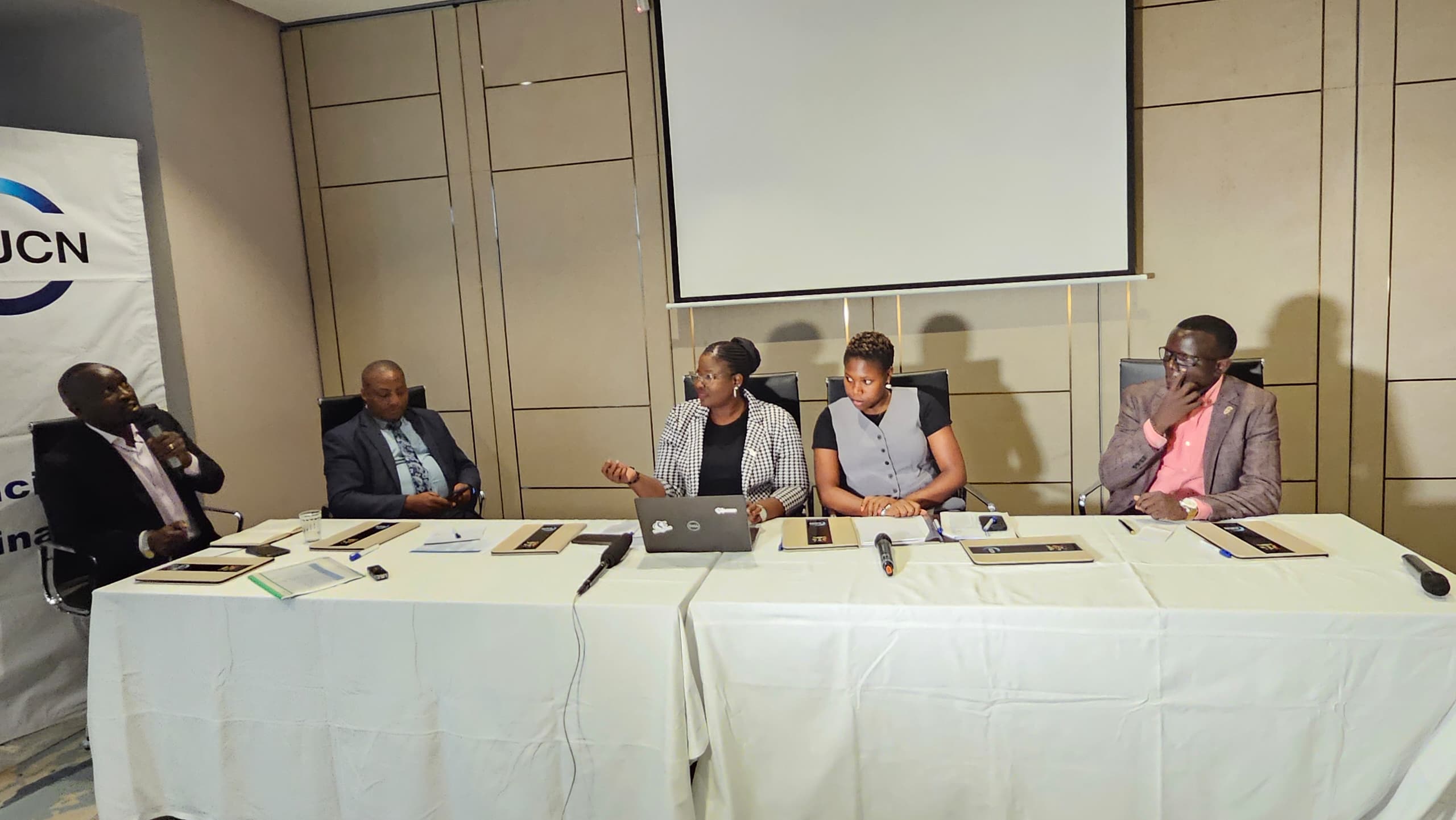
The availability of diverse planting materials, particularly indigenous trees, is also a key focus, with plans to establish nurseries in every sub-county.
Mr. Kazungu shared an encouraging observation: “We did an assessment and found out that some individuals are picking from their savings to purchase seedlings. This shows that our message is being embraced by Ugandans.”
The MWE also collaborates with other partners under climate change support frameworks, such as the GCF, to fund tree planting, biodiversity, and conservation initiatives.

Mr. Kazungu noted that the MWE coordinates and steers natural resources financing and management, expressing appreciation for private sector involvement and announcing future awards for private actors who finance these initiatives.
Mr. Luther Anukur, IUCN Regional Director and a keynote speaker, described the meeting as a timely dialogue for advancing nature-based growth and fostering collaboration to improve financing for climate, biodiversity, and sustainable development in Uganda.
He noted that as Uganda embarks on its National Development Plan (NDP4), this dialogue outlines long-term ambitions for supporting nature as a cornerstone of Uganda’s economy and a catalyst for environmental conservation.
“We face unprecedented land degradation and destruction of the general environment—now is the time to unlock pathways and partnerships to scale up nature-positive strengthening actions,” said Mr. Anukur.
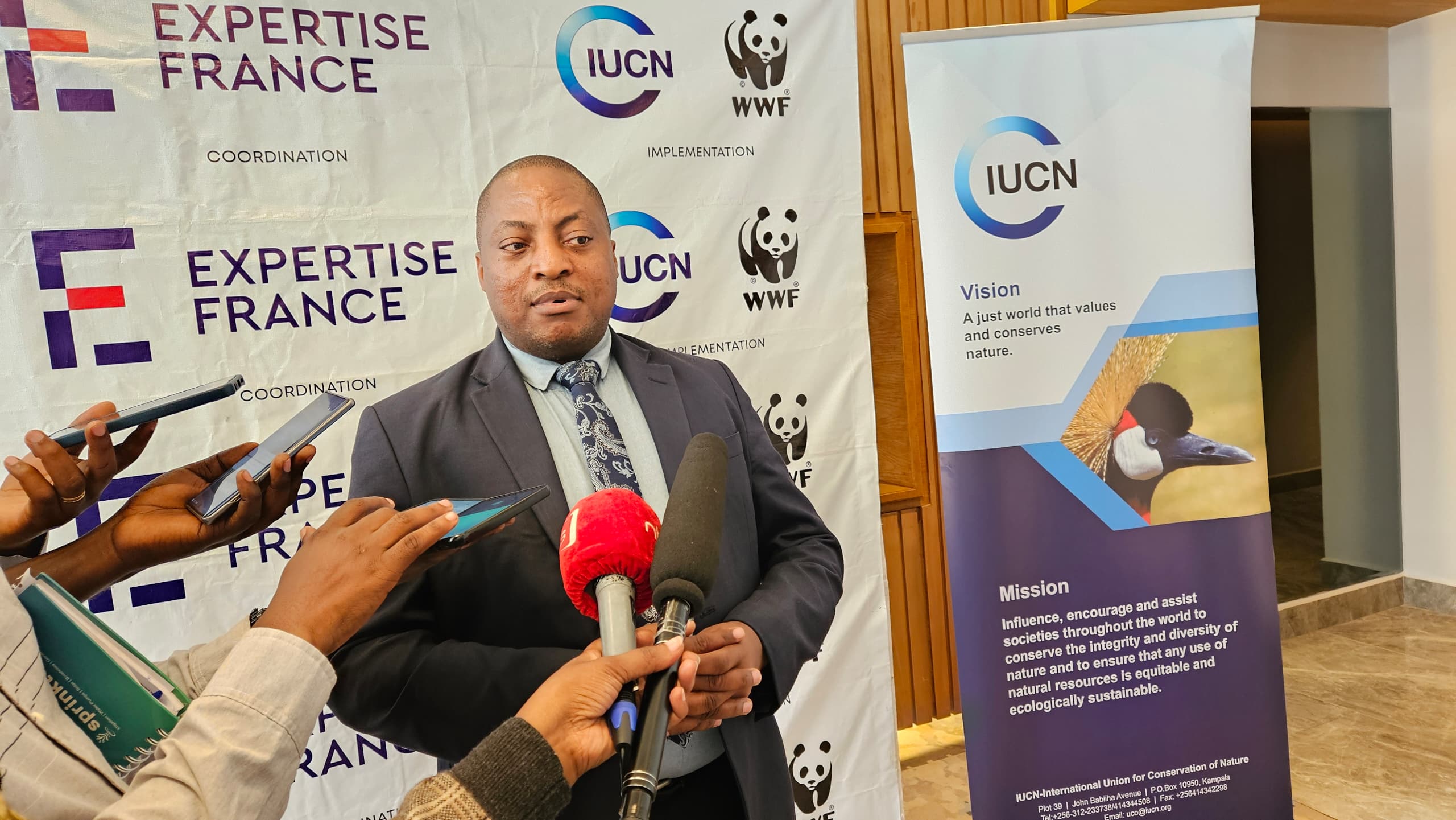
He commended the leadership of the Ministry of Water and Environment, the Ministry of Energy and Mineral Development, and other government entities.
Mr. Anukur reiterated IUCN’s support, which aims to help restore 2.5 million hectares of forests to enhance forest integrity and address human well-being issues.
The high-level meeting attracted participants from various international embassies, including Sweden, the British High Commission, Belgium, Japan, France, and Denmark. Other key attendees included officials from the Ministry of Finance, Planning and Economic Development, Ministry of Energy and Mineral Development, Makerere University Department of Environmental Affairs, EcoTrust, UN Women, and numerous other environmental and development organizations.
